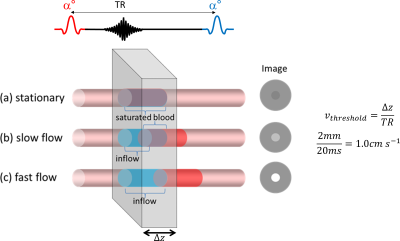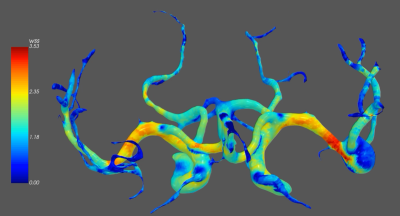Weekend Course
Vascular Imaging: Viewing Structure & Function
ISMRM & ISMRT Annual Meeting & Exhibition • 03-08 June 2023 • Toronto, ON, Canada

| Contrast-Enhanced MRA | |||
| 07:45 |
CE-MRA vs. CTA: Which Exam to Perform
Giles Roditi
Keywords: Cardiovascular: Cardiovascular The aim of this presentation is to highlight the issues that will clinically dictate whether to perform CE-MRA or CTA, providing a framework to approach the problem illustrated with case studies |
||
| 08:10 |
CE-MRA with Novel Contrast Agents
Peng Hu
Keywords: Cardiovascular: Vascular In this talk, latest developments in CE-MRA will be discussed, with a special emphasis on novel contrast agents such as ferumoxytol, which has gained more attention in the past five years within the CE-MRA community. Both technical pulse sequence optimizations and clinical examples of ferumoxytol CEMRA will be discussed for different body sites. Cardiac applications will also be discussed. |
||
| Non-Contrast-Enhanced MRA | |||
| 08:35 |
 |
History & Current Status of Non-Contrast-Enhanced MRA Techniques
Martin Graves
Keywords: Cardiovascular: Angiography Non-contrast-enhanced magnetic resonance angiography (NCE-MRA) has evolved considerably since its inception in the mid-1980s. The technique uses flow-related signal changes to visualize the vasculature, without contrast agents. Initially, time-of-flight (TOF) and phase-contrast (PC) were the most common methods. However, limitations such as flow-related artifacts and slow acquisition times, have led to the development of techniques like flow-sensitive dephasing (FSD), balanced steady-state free precession (bSSFP) and quiescent-interval slice-selective (QISS). These methods have shown promise in improving image quality and reducing scan times. NCE-MRA is currently used in clinical practice, particularly for patients with renal insufficiency or contraindications to contrast-enhanced imaging. |
|
| 09:00 |
The Clinical Value of Non-Contrast-Enhanced MRA
Ruth Lim
Keywords: Cardiovascular: Vascular, Cardiovascular: Angiography Non contrast enhanced MRA (NC MRA) has been available for many years with multiple techniques developed in response to the discovery of Nephrogenic Systemic Fibrosis. When to consider NC MRA will be discussed, including advantages and challenges. Techniques including flow-dependent, flow independent and phase sensitive techniques will be reviewed, as well as where within the body they are best applied. Clinical examples applying these techniques will be discussed. |
||
| 09:25 |
Break & Meet the Teachers |
||
| Vessel Wall & Multiparametric Vascular Imaging | |||
| 09:50 |
Multicontrast MR Vessel Wall Imaging
Niranjan Balu
Keywords: Cardiovascular: Atherosclerosis This course will discuss the fundamental principles underlying the need for multi-contrast MRI in the context of vessel wall pathology. The target audience is researchers and clinicians who are interested in understanding the basics of vessel wall MRI acquisition, processing and interpretation. As a result of this course, participant will be able to describe the MR sequences specifically used for vessel wall MRI, the interpretation of vessel wall components particularly with reference to atherosclerosis and be able to adapt the protocol and methods to other vessel wall pathologies and different vascular beds. |
||
| 10:15 |
Multiparametric & Multitasking Vessel Wall Imaging
Haikun Qi
Keywords: Cardiovascular: Vascular Multiparametric and Multitasking Vessel Wall MRI are a set of innovative MRI techniques that are transforming the way of vessel MRI by providing more efficient and motion-robust imaging than traditional methods. These techniques involve advanced MRI sequence design to allow for the acquisition of multiple imaging parameters in a single scan. This presentation will introduce the recent advancements in vascular imaging using multicontrast and multiparametric MRI. Finally, the current challenges for clinical translation and potential solutions will be discussed. |
||
| Assessing Vascular Function with 4D Flow MRI | |||
| 10:40 |
4D Flow of the Aorta
Liliana Ma
Keywords: Cardiovascular: Hemodynamics, Cardiovascular: Vascular, Cardiovascular: Blood This talk will discuss the application of 4D flow MRI to the aorta. It will cover the acquisition of a 4D flow data set and relevant post-processing steps used to go from raw images to potentially useful data. In addition, qualitative visualization, quantitative analysis, common clinical parameters, as well as advanced analyses will also be discussed. |
||
| 11:05 |
 |
Intracranial 4D Flow
Rui Li
Keywords: Cardiovascular: Vascular With the technical development and the clinical validation of 4D Flow MRI, it is doable in routine clinical diagnosis with valuable hemodynamic information. |
|
The International Society for Magnetic Resonance in Medicine is accredited by the Accreditation Council for Continuing Medical Education to provide continuing medical education for physicians.